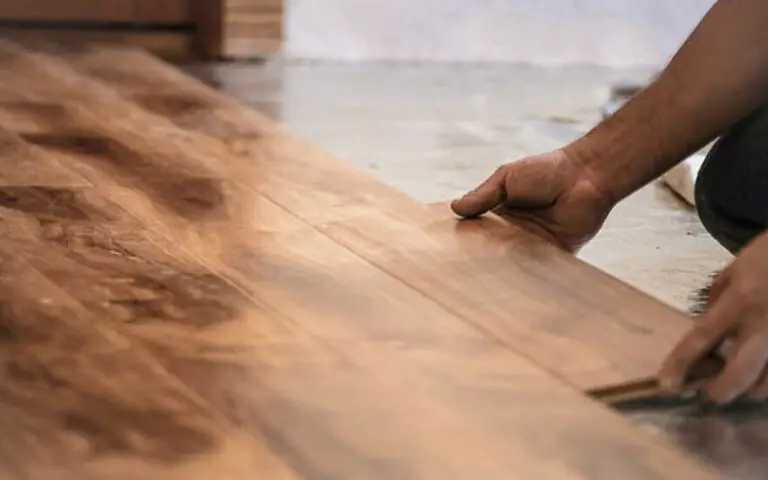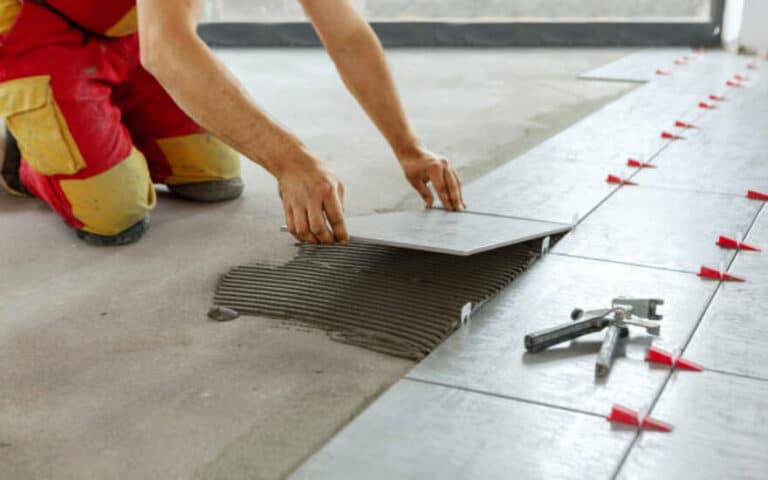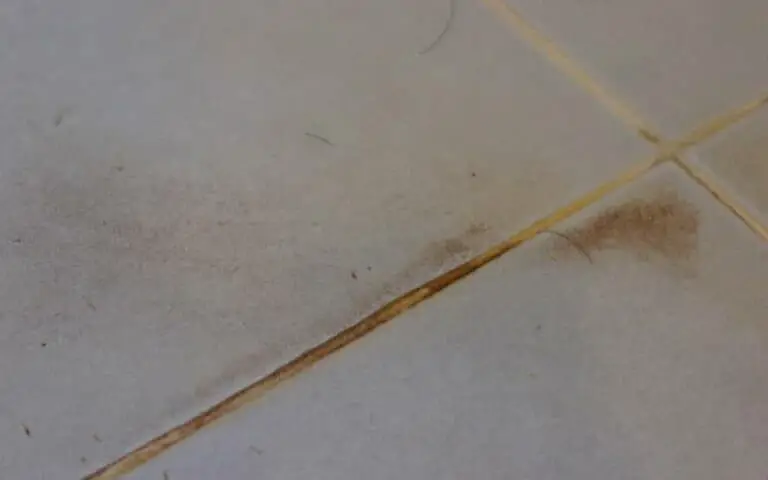Yes, porcelain tile is a good choice for bathroom floors. It’s durable, easy to clean, and has a classic look that never goes out of style.
Porcelain tile is also resistant to chipping and staining, making it a low-maintenance option for busy bathrooms. If you’re looking for a flooring material that will withstand moisture and wear and tear, porcelain tile is a great choice.
Let me tell you the pros and cons of using porcelain tile for bathroom flooring so you can decide.

What is Porcelain Tile?
First, we need to understand what porcelain tile is. A porcelain tile is made from a combination of clay and minerals like quartz, feldspar, and other minerals. It is fired at very high temperatures to bind the materials together. It is glazed and finished for use in your home when it cools.
Why Choose Porcelain Tile for Bathroom Flooring?
When choosing a new flooring for your bathroom, you want to ensure it will stand up to water and humidity. Laminates, vinyl, and hardwood flooring are not great choices because they are slippery, porous, and can’t handle as much water. Tile, if it’s made of porcelain, will suit your bathroom needs ideally. Porcelain tile is made of minerals that are naturally water-resistant and non-absorbent. It can be installed in showers, walls, and bathrooms to reduce water damage. Porcelain tile is so durable that it can withstand foot traffic, too. It is also stain-resistant and easy to clean.
Pros of Using Porcelain Tile in the Bathroom – Is Porcelain Tile Good For Bathroom Floors
Water-resistant mineral
Porcelain tile is made of minerals that are naturally water-resistant. This will help protect your flooring from any water damage due to humidity or water leaks.
Easy to clean
Due to porcelain tile’s non-absorbent properties, it is easy to clean. Dirt and grime will not be able to stick to it, making it very easy to vacuum or sweep.
Will not corrode
If you have a shower with a lot of water flow, you will likely have a problem with the pipes corroding. While you can’t prevent this entirely, installing porcelain tile can protect your investment. It will not corrode due to the minerals used in its makeup.
Resistant to staining
Because porcelain tile is stain-resistant, you won’t have to clean it as often. This will save you time, effort, and water.
Will not scratch
Not only is porcelain tile stain-resistant, but it is also scratch-resistant. This means it can withstand some foot traffic.
Resilient
Due to its resilient nature, porcelain tile can withstand a lot of wear and tear without needing to be replaced.
Environmentally friendly
Instead of harming our environment through extraction methods and toxins, porcelain tile is made from materials that can be broken down easily. While some minerals can be toxic, the ones used to make porcelain tiles are not.
Versatile
Porcelain tile is available in various colors, finishes, and sizes. This means you can choose a style that matches your taste and preferences.
Cons of Using Porcelanite Tile in the bathroom
Expensive
You will pay a higher price when you install porcelain tile than many other materials. While it is worth it, you should be prepared to spend more money upfront.
Hard to install
Porcelain tile can be challenging to install. If you are unfamiliar with home renovations, you might want to hire a professional.
What are some better alternatives to porcelain tile?
Wood Flooring
Wood flooring is an excellent alternative to porcelain tile. It is both waterproof and scratch-resistant.
While it requires more maintenance, it is an excellent alternative to porcelain tile.
Resilient Flooring
Resilient flooring, like synthetic or natural rubber, can be a good alternative to porcelain tile. It can withstand a lot of foot traffic and is water-resistant.
Vinyl Flooring
vinyl flooring is an excellent alternative to porcelain tile. It is easy to clean and is water-resistant.
Summary
If you are looking for a flooring material that is durable, easy to clean, and scratch-resistant, then you should consider installing porcelain tile. While it does have some drawbacks, like being expensive and difficult to install, it is worth the investment. It is also an environmentally-friendly option that can last for years to come.






